Introduction
Switzerland, renowned for its neutrality and financial prowess, is once again the stage for a heated debate on corporate responsibility. The “Pour des multinationales responsables” initiative, relaunched in January 2025, builds on a 2020 effort that garnered popular support but failed at the cantonal level, resulting in a weak counterproposal focused on reporting rather than enforcement [2]. This new version, backed by a coalition including former National Councillor Dominique de Buman, targets multinationals like Glencore for alleged human rights abuses and environmental damage, including in deep-sea mining [1]. With rapid signature collection—183,661 in just 14 days—it reflects surging public demand for binding laws, especially as Glencore promotes raw materials extraction as essential for the green transition [5]. Yet, corporate lobbying and parliamentary delays persist, highlighting Switzerland’s outlier status in Europe without equivalent legislation to the EU’s 2024 directive [3].
The Initiative’s Core Demands and Public Momentum
At its heart, the 2025 initiative mandates that Swiss-based companies with at least 1,000 employees and CHF 450 million in turnover—or those in high-risk sectors like mining—respect human rights and environmental standards globally, facing liability for breaches [4]. This directly addresses cases like Glencore’s Antapaccay mine in Peru, where pollution has been linked to community health issues, including child poisoning from contaminated water [4]. The campaign’s swift success, with signatures exceeding 287,000 by May 2025, underscores strong citizen backing, as noted by Public Eye: “This shows the public’s frustration with ineffective counterproposals” [1].
Drawing from studies, the initiative critiques ongoing violations, such as Glencore’s toxic waste issues in Namibia and child labor in cocoa supply chains [2]. Alliance Sud reports emphasize how the 2020 diluted law failed to curb these, leaving Switzerland vulnerable to becoming Europe’s lone holdout without binding rules [2], [3]. Supporters argue it aligns with international norms, mirroring the EU directive that requires due diligence on human rights and environmental impacts [3].
Glencore’s Role: Environmental Impacts and Deep-Sea Mining Controversies
Glencore, a Swiss commodities behemoth controlling significant global markets (e.g., 60% of zinc and 50% of copper), faces intense scrutiny for its environmental footprint. Its involvement in deep-sea mining, through partnerships like with The Metals Company and Allseas, exploits polymetallic nodules for critical minerals needed in batteries and renewables. However, experts warn this threatens abyssal ecosystems, home to thousands of species, with irreversible biodiversity loss. Recent analyses highlight Glencore’s contracts benefiting from U.S. policies under the Trump administration, which authorized deep-sea exploitation despite international opposition.
Critics, including the Coalition for Responsible Multinationals, accuse Glencore of “greenwashing” by framing these activities as vital for the energy transition, while ignoring pollution and human rights violations in sites like the Democratic Republic of Congo. This insight notes the “irony of greenwashing oceanic”: extracting “green” metals destroys marine carbon sinks, undermining sustainability goals. Glencore defends itself, investing in emission reductions and withdrawing lawsuits against activists to avoid costs, arguing its operations support global decarbonization [G11].
Expert Perspectives and Balanced Viewpoints
Expert analyses reveal polarized views. Dominique de Buman, a key proponent, positions the initiative as a “genuine commitment” to ethical business, countering corporate influence in Swiss politics [1]. Conversely, some economists criticize it for lacking pragmatism, potentially burdening businesses without addressing supply chain complexities. On X, discussions reflect public skepticism, with users decrying Glencore’s digital propaganda as flooding Swiss online spaces, amplifying calls for transparency, research, based on recent posts.
An original insight from research suggests Switzerland could act as a “geopolitical arbiter” against expansive mining policies, like those from Trump, by enforcing “oceanic audits” to quantify biodiversity impacts. NGOs like Greenpeace echo this, labeling deep-sea mining “not environmentally viable” and urging alternatives like metal recycling [from X posts, non-specific].
Constructive Solutions and Future Pathways
Amid debates, solutions emerge: the initiative proposes legal accountability, including compensation for victims, as seen in demands for Glencore to address Peruvian pollution [4]. Broader efforts include EU-style due diligence, with Switzerland studying integration [3]. Experts advocate recycling technologies to reduce mining reliance, and Glencore’s own sustainability reports outline emission cuts, though critics demand independent verification.
Innovative proposals, like mandatory net-impact assessments for energy transition materials, could bridge gaps, fostering “responsible innovation” without halting progress.
1. KEY FIGURES:
- 183,661 signatures were collected in just 14 days for the new Swiss initiative “Pour des multinationales responsables” launched in January 2025, showing strong public support (Source: Public Eye) {1}, {5}.
- The initiative targets companies with at least 1000 employees and CHF 450 million in turnover, but also includes large companies in high-risk sectors like raw materials even if they do not meet these thresholds (Source: SSP-VPOD) {4}.
- Switzerland risks becoming the only European country without binding corporate responsibility legislation in this domain, while the EU adopted a due diligence directive in 2024 (Source: Campax, Public Eye) {1}, {3}.
2. RECENT NEWS:
- On January 7, 2025, a broad coalition including politicians such as former National Councillor Dominique de Buman launched the new initiative demanding that Swiss multinationals respect human rights and environmental norms in their global operations. The initiative was submitted to the federal chancery after rapid signature collection (Source: Public Eye) {1}.
- Glencore, a Swiss multinational heavily involved in mining, including deep-sea mining contracts, is a key target. The initiative aims to hold it accountable for pollution and environmental damage, such as at its Antapaccay mine in Peru (Source: SSP-VPOD) {4}.
- Despite the growing international legal framework, Swiss parliamentary debate remains dominated by lobbyists, delaying effective legislation. Critics highlight Glencore’s extensive digital propaganda promoting the necessity of raw materials for energy transition as influencing public opinion and policy (inferred from campaign context) {1}, {2}.
3. STUDIES AND REPORTS:
- The 2020 Swiss initiative on responsible multinationals narrowly failed at the cantonal level despite popular support, leading to a diluted counterproposal that focused mainly on reporting and had little enforcement effect, as shown by ongoing environmental and human rights violations by Swiss multinationals (Source: Alliance Sud) {2}.
- The EU Directive on Corporate Due Diligence (2024) mandates large companies to respect human rights and environmental standards, setting a benchmark that the Swiss initiative aims to mirror or exceed (Source: Campax) {3}.
- Reports highlight that Swiss multinationals such as Glencore pollute ecosystems (e.g., toxic waste in Namibia from IXM, gold refinery issues, child labor in cocoa supply chains) emphasizing the urgency of binding legislation (Source: Alliance Sud) {2}.
4. TECHNOLOGICAL DEVELOPMENTS:
- While specific technological developments in deep-sea mining are not detailed in the sources, the contractual involvement of Glencore in deep-sea mining for critical minerals linked to the energy transition underlines the technological and environmental stakes (Source: campaign context, inferred from Glencore’s business activities) {1}.
- The campaign stresses the need for technological accountability and transparency in the extraction and use of raw materials critical for the ecological and energy transition, countering corporate narratives on necessity and sustainability (based on campaign analysis) {1}.
5. MAIN SOURCES:
- https://www.publiceye.ch/fr/coin-medias/communiques-de-presse/detail/la-nouvelle-initiative-pour-des-multinationales-responsables-a-ete-deposee – Press release on the initiative launch and signature gathering.
- https://www.alliancesud.ch/fr/une-nouvelle-initiative-pour-des-multinationales-responsables – Analysis of ongoing violations by Swiss multinationals and critique of counterproposals.
- https://campax.org/fr/nouvelle-initiative-pour-des-multinationales-responsable/ – Advocacy for the initiative and EU legislative context.
- https://ssp-vpod.ch/news/2025/lancement-dune-nouvelle-initiative-pour-des-multinationales-responsables/ – Details on the initiative’s conditions and targets, including Glencore.
- https://unite-ch.org/fr/actualites/news/multinationales-responsables-183-661-signatures-recoltees-en-14-jours/ – Report on the rapid signature collection and political challenges.
This synthesis shows a strong citizen-driven movement in Switzerland in 2025 to enforce multinational corporate responsibility, especially targeting companies like Glencore linked to environmentally harmful mining practices, including deep-sea mining. The campaign is politically supported by figures such as Dominique de Buman and reflects growing alignment with international standards such as the EU due diligence directive. However, strong corporate lobbying continues to influence parliamentary debates, while Glencore is criticized for extensive propaganda promoting the necessity of raw materials extraction for the green transition.
Propaganda Risk Analysis
Score: 7/10 (Confidence: medium)
Key Findings
Corporate Interests Identified
The article targets Glencore negatively for its partnerships in deep-sea mining (e.g., with The Metals Company), potentially benefiting competitors in recycling technologies or alternative energy sectors. Environmental groups like Greenpeace appear to influence the narrative, as seen in web sources where they file complaints against Glencore for misleading net-zero claims. No direct evidence of Glencore’s influence in the article itself, but it frames mining giants as antagonists, which could indirectly support anti-mining corporate interests.
Missing Perspectives
The article appears to exclude pro-mining viewpoints, such as those from industry experts or companies arguing that deep-sea mining is essential for sourcing critical minerals in the energy transition (e.g., for EVs and renewables). Voices from mining firms, trade organizations, or governments supporting regulated mining for economic benefits are absent, based on the provided subject matter which focuses heavily on environmental tolls and recycling alternatives without balancing economic or technological necessities.
Claims Requiring Verification
The article mentions ‘environmental toll’ and ‘impact assessments’ without specific sourcing or data; claims about deep-sea mining’s risks (e.g., to marine life and carbon sinks) echo unverified statistics in related web articles, such as estimates of 200 million tons of CO2 sequestration by benthic bacteria annually, which lack independent verification in the provided context. Framing mining as ‘vital for energy’ seems selectively critical without quantifying benefits or citing peer-reviewed studies.
Social Media Analysis
Recent X/Twitter posts reveal strong sentiment against deep-sea mining, with accounts like Greenpeace and eco-activists posting about its environmental risks, calling it a ‘biggest crime’ and linking to reports on habitat destruction. Posts criticize Glencore’s record and partnerships with The Metals Company, while some discuss alternatives like recycling and AI in mining for sustainability. A few posts from 2025 touch on energy transition and mining efficiency, but the majority are critical, with high engagement on anti-mining content. No overt paid promotions detected, but patterns suggest NGO-driven coordination.
Warning Signs
- Excessive criticism of Glencore and deep-sea mining without balanced discussion of benefits for energy transition or critical mineral needs
- Language resembling advocacy slogans (e.g., ‘Pour des multinationales responsables’) that sounds like NGO campaign copy rather than neutral journalism
- Absence of independent expert opinions from pro-mining or regulatory bodies, focusing instead on anti-mining experts advocating recycling
- Potential coordinated promotion on social media, with repetitive anti-mining posts from activist accounts amplifying similar themes
Reader Guidance
Other references :
publiceye.ch – La nouvelle initiative pour des multinationales …
alliancesud.ch – Une nouvelle initiative pour des multinationales …
campax.org – Nouvelle initiative pour des multinationales responsables
ssp-vpod.ch – Initiative pour des multinationales responsables
unite-ch.org – Multinationales responsables : 183’661 signatures récoltées …
responsabilite-multinationales.ch – Source
responsabilite-multinationales.ch – Source
fr.wikipedia.org – Source
lemonde.fr – Source
rts.ch – Source
letemps.ch – Source
basta.media – Source
rts.ch – Source
20min.ch – Source
letemps.ch – Source
initiative-multinationales.ch – Source
evenement.ch – Source
initiative-multinationales.ch – Source
x.com – Source



